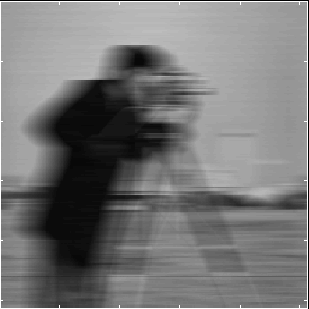Ideology means many things, but one of them is the difference between who gets the maximum benefit of the doubt, and who gets the presumption of guilt. I know what I see, when I see this clip:
http://www.youtube.com/watch?v=nWKoS2B-u0M
I see a law professor shoving a student—shouting “Get away from my space, you prick”—making more threatening movements, attempting to provoke a fight verbally, and grabbing a student’s cell phone out of her hand. I see the student who was pushed and threatened staying calm and passive, even trying to defuse the situation. I see the student whose phone was taken from her hands defending herself verbally and no more. And then the clip ends.
It is clear to me what I see in the video. It is clear to me who, in the video, is turning a political conflict into a physical one, and who it is that is aggressively trespassing into whose space. Mine is an ideological account of what happened, of course. Which is not to say that it’s wrong—yours is ideological too—but simply that any reading of this event, this brief window in time, cannot help but be shaped and contextualized by what you or I expect to see. And it also can’t help but be shaped by the context which we assume into existence, framing the event.
After all: what happened before this video began? What happened after it ended? That context could change how we view what we’ve just seen. In fact, it has to: we’ve already filled in the gaps in our knowledge with assumptions about what we don’t know. One of two things is true: either the law professor was provoked in some way that would justify or mitigate his conduct, or he wasn’t. And before we come to a decision about what we’ve seen, we’ve decided which of those two things are probably true. And how we come to that decision will most likely have everything to do with what our opinions are about Israel/Palestine, border checkpoints, and the meanings of the words Apartheid and Imperialism.
For example, the person who posted the video framed it this way:
“During our solidarity mock check-point/border check point, University of Oregon professor, James Olmsted, physically pushes two students after making very racists remarks to all of us. This was after we had asked him to calm down because he was making us feel intimidated.”
In this video, we see the same confrontation from a different angle, and we see some of what happened after the first video cuts out:
The poster of that video says more or less the same thing as the poster of the first video:
“Seconds before this video was recorded he shoves a student and continues to stir up tension until UOPD arrive on the scene.”
A commenter on the first video asserts:
“there are two sides to everything...people dont just act like this for no reason...I guarantee you the professor was reacting to something that isnt shown in this video”
An a commenter on the second also asserts that they are the aggressors:
“hahaha that girl thinks she's being harassed. In reality, it's a group of weirdos surrounding a law professor recording him, and pushing their ideals on him.”
After all: if this confrontation began with the students aggressively encroaching on his space—as he seems to be claiming—thereby impeding his ability to move freely, then our sympathy will naturally gravitate towards his side of the story. If he was simply going about his business, and they provoked him, then at least he isn’t the only asshole in the situation. But if the reverse is the case—if they were simply putting on a campus demonstration, peacefully—then he is obviously the one trying to provoke a confrontation. This is especially the case if, beforehand, he was making racist remarks.
Which is it? Which do you see?
Now, watch this six minute version, which is taken from the phone that he snatches from the students hand and puts in his pocket:
http://www.youtube.com/watch?v=CYgWsKQJcLo&feature=youtube_gdata_player
